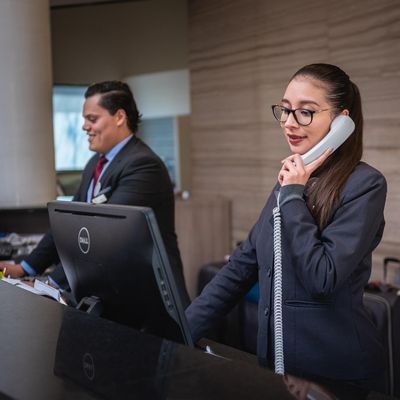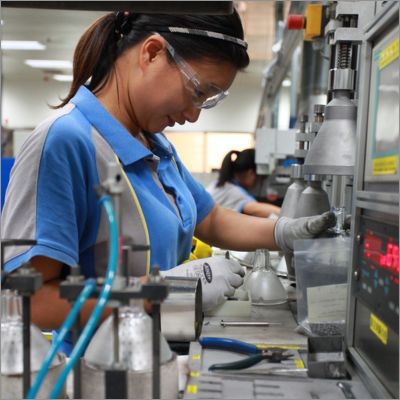On the surface, both platforms assure guided training, compliance management and tracked progress. However, there's a twist to this; hospitality is not just any other industry. It maintains itself through excellence in service, rapid response and promptness, and unforgettable guest experiences. This is where the Hospitality LMS (Learning Management System) becomes the front-runner, with its specialised features that can not be possibly matched with generic solutions.
Take a Look at the Basics
To plunge into Hospitality LMS vs Generic LMS, we must first be clear on the definitions:
- Generic LMS: This is a generic training platform that can be used to facilitate the learning of employees in any industry. Imagine it as an all-purpose solution that offers simple course hosting, course tracking and reporting.
- Hospitality LMS: A Learning Management System that is specifically made to be used within a hotel, resort, restaurant, and travel and tourism company. It does not just stop at basic but includes compliance requirements, service training, guest-interaction modules, and multi-location management.
Both systems have the capability of providing learning material. However, the Hospitality LMS gives a layer of industry specificity that makes sure that training is not just about module completion but also about improving the quality of service and user satisfaction.
Why Specialised Training Is Needed in Hospitality
Imagine this: You are training a new front desk associate in your hotel. They have the potential to either break or make your brand reputation by the very first time a guest is handled in hospitality. General compliance training will not equip them with situations such as how to deal with an overbooked room, soothe an angry customer or sell high-end services.
This is where a Hospitality Learning Management System comes in. It has role-based training, simulation modules, and service-based learning paths that simulate real-life situations. And rather than generic onboarding, your new employee is given a training program that focuses on hospitality dilemmas.
Hospitality LMS vs Generic LMS: What Makes Them Different
A. Sector-Specific Content
Generic LMS: This is the type of LMS that offers general learning materials, but typically, you need to create industry-specific content on your own.
Hospitality LMS: It is pre-configured with customer service, food safety, health and hygiene, property management systems and guest interaction training modules.
B. Management of Training in Multiple Locations
Generic LMS: Take care of user management, but can be ineffective with complex organisations such as franchises, resorts or international hotel chains.
Hospitality Learning Management System: It is a multi-property system. Managers are able to allocate, monitor and normalise training in more than one location, but at the same time make it regional.
C. Emphasis on Guest Experience
Generic LMS: It is more employee knowledge and skills oriented, yet it is not correlated with guest satisfaction indicators.
Hospitality LMS: Training is directly linked to the quality of the guest service. Made-in modules are based on soft skills, teamwork, and cultural sensitivity, which are necessary to give the guest a memorable experience.
D. On-the-go Training
Generic LMS: Can be desktop-based and not designed to support on-the-job learning in real-time.
Hospitality LMS: 100% mobile-responsive, which means that it can be accessed by the staff at any moment amidst shifts, during downtime, or even before attending to a guest.
E. Adaptive to Culture and Language
Generic LMS: At best, it offers simple translation.
Hospitality LMS: Provides multi-language services and training materials relevant to culture to address the gaps and ensure the same level of service quality across the globe.
F. Link to Hospitality Systems
Generic LMS: Integrates with HR or payroll software and is seldom integrated with any hospitality software.
Hospitality LMS: Compatible with a property management system (PMS), reservation software, and point of-sale system. Training information is thus compatible with the real systems.
Real-World Instance
Consider two hotels: Hotel A is on a generic LMS, and Hotel B invests in a Hospitality Learning Management System.
The employees of Hotel A attend online safety courses, but cannot deal with guest complaints due to the fact that the training was not service-specific.
The staff of Hotel B goes through role plays of conflict resolution, upselling, and interaction with guests. Their guest satisfaction rates go up, repeat bookings grow, and their employees become more confident.
This analogy explains why in the hospitality LMS vs. Generic LMS argument, the specific solution always prevails.
Advantages of a Hospitality LMS
It becomes obvious that a Hospitality LMS has great benefits now. Let's sum them up:
- Accelerated recruitment based on hospitality positions.
- Less certification risk with in-built certifications.
- Training in different locations.
- Higher guest satisfaction ratings courtesy of service-oriented training.
- High ROI because of the improved training will directly translate into the increased rates of occupancy, revenue per guest and reputation.
Will a Generic LMS Ever Be Sufficient?
You may be asking yourself: "Do I actually need a dedicated Hospitality Learning Management System, or can I afford to work with a generic one?"
Well, it depends on what you want to do. If you've just got a few people at a small coffee shop, a basic system might be enough for simple training. But if you're growing, want everyone on the same page with your brand, and are up against others in the hospitality world, then a hospitality-focused system is super important.
Taking Care of Typical Issues
The question that may arise in your mind is: Why not use a Generic LMS when it is cheaper or already exists? The following are some of the things to put in mind:
- Tailoring Costs: Trying to customise a generic platform to suit your hospitality needs can be a costly process, including extra costs and time-intensive development.
- Lower Engagement Rates: Your employees can get bored with the training or not see the applicability to the industry, which impacts the learning outcome.
- Compliance Risks: The absence of a warning about the lack of certification or the obsolete information is also likely to lead to certain costly breaches.
- Poor Scalability in Hospitality: A generic solution might not be able to support the new content, languages, and integrations that will be needed as your business expands.
Advice on Selecting the Best Hospitality LMS
- Find vendors that have experience in the hospitality business and have good feedback.
- Make sure that the platform is mobile-first to allow the frontline employees to engage.
- Check the presence of the courses on the major hospitality topics and regulatory issues.
- See if it can integrate seamlessly with your existing management software.
- Get a demo or trial to see the quality of the interface and the content with your own eyes.
- Emphasise those platforms with strong multi-language support in the event that you are working in different areas.
Hospitality LMS vs Generic LMS: Which one is better? There is no doubt that Hospitality Learning Management System is the best bet in business, where service excellence is taken seriously. Although a generic LMS will make the boxes of compliance tick, it will not turn your team into the champions of experience.
In case you want your employees to not only perform to expectations but also to go above them, select a Hospitality LMS. It isn't just software; it is your roadmap to creating a learning, service, and guest satisfaction culture that will give your brand an edge.
Since in hospitality, every interaction matters, and the appropriate LMS will make your employees eager to make every moment memorable.
Related Posts

24 October, 2025



